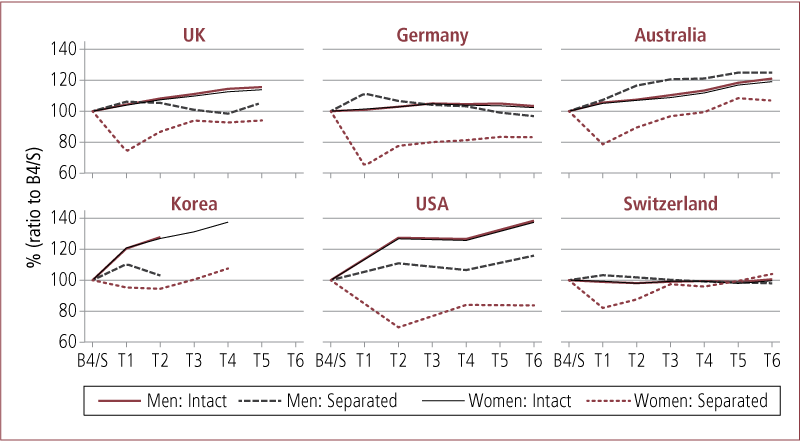From one of the Italian-language small groups, (in Purgatory, the spiritual stylist getting us gussied up for the Wedding Banquet, presumably an angel? will say as part of
in the course of the Circle’s work the necessity emerged of giving particular consideration to two important topics: The first concerns all those women that have suffered violence and witness eloquently respect for life and the courage to take on responsibilities, having children resulting from violence to be born and raised, despite not a few environmental and often family threats.That second is quite a surprise to me, because I thought it was a settled sociological "fact', (at least in the US under "no-fault," and, judging from the chart below, other first world countries,) that it was women who took the biggest economic hit in divorce.
The second makes appeal for a particular look of care, which must involve ecclesial solidarity, addressed to those spouses – often husbands and fathers – impoverished by separations.
Is this one of those "studies show that...." factoids which "everyone" "knows" but happens to be untrue?
Oddly in the cases to which I am closest, it is the wife who was physically abusive, and the man who is working a half dozen jobs to support two households - in one instance, the husband is also the primary caregiver for two small children despite not having custody.
(Perhaps I just know great guys?)





No comments:
Post a Comment